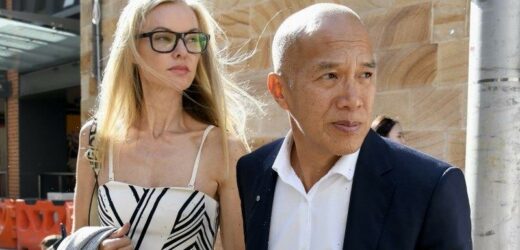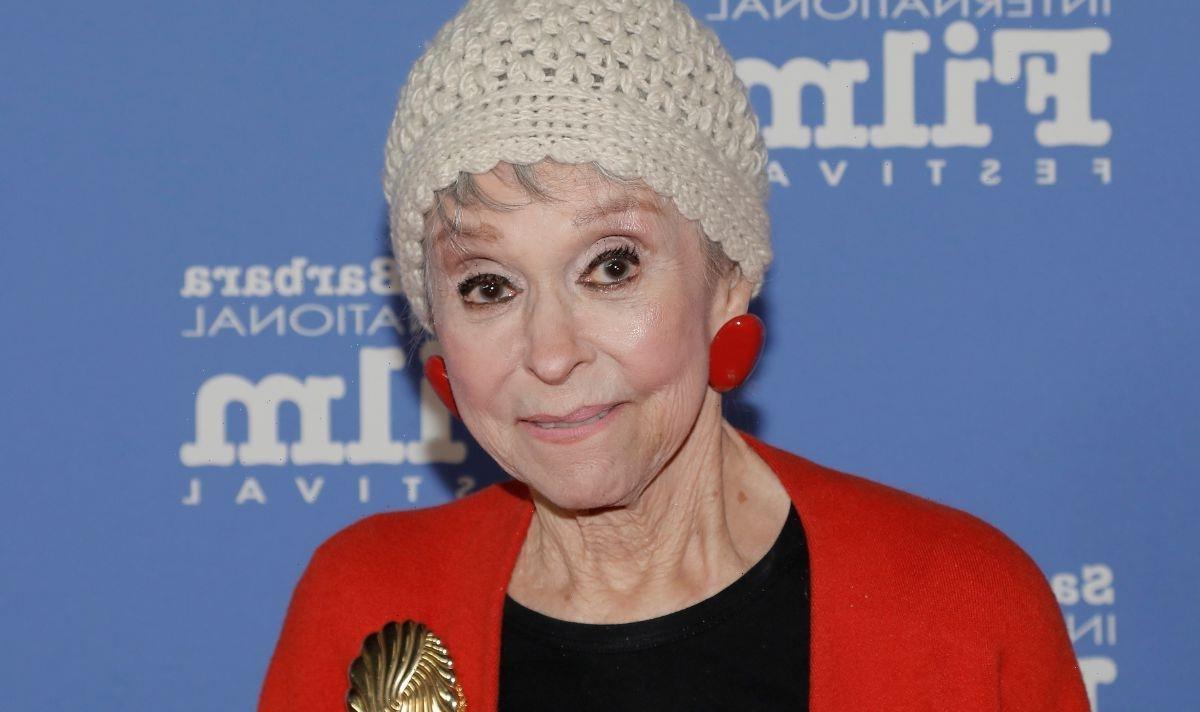By Kate McClymont
Charlie Teo and partner Traci Griffiths arrive at the hearing on Thursday.Credit:Nick Moir
Neurosurgeon Charlie Teo put his head in his hands, looked indignantly at the ceiling, and later sighed loudly in frustration.
What was being put to him at his disciplinary hearing was that the evidence of two experts – including one called by his own legal team – indicated Teo had performed a catastrophic and futile surgery on a Perth woman with a clearly inoperable high-grade brain stem glioma.
Teo begged to differ. “I don’t expect them to know as much as I do,” he fumed. “I have more experience with brain stem tumours than almost anyone in the world,” including his own expert witness.
Charlie Teo leaves the hearing with partner Traci Griffiths on Thursday.Credit:Dean Sewell
“My lawyers chose him [Professor Byrant Stokes]. He is a nice man but he doesn’t know as much about brain tumours as I do,” Teo said.
At the crux of this hearing is not Teo’s self-proclaimed superior knowledge or his surgical competence. “Dr Teo is a very skilled surgeon, in my opinion,” Stokes said. Another neurosurgeon called to give expert evidence, associate professor Andrew Morokoff, agreed.
It is his lack of insight, judgment and whether he fully explains the serious risks to his patients that are at issue.
The hearing, which is scheduled to resume on Monday, is examining multiple complaints surrounding two disastrous operations Teo performed. The first was on a 41-year-old woman from Perth in October 2018. The second was a February 2019 operation on a 61-year-old woman from Geelong.
His judgment in operating on the women’s brain tumours, which their original surgeons deemed inoperable, had the expert witnesses scratching their heads. Even Teo’s own medical expert described the rationale for operating on the Perth woman as “nonsense”.
Both surgeries had predictable catastrophic results.
For the much-lauded neurosurgeon, the stakes couldn’t be higher with his famed medical career hanging in the balance.
Kate Richardson SC, representing the Health Care Complaints Commission, told the Professional Standards Committee hearing she was seeking a finding of unsatisfactory professional conduct, a reprimand and the placing of conditions on Teo’s medical registration.
Teo wants the restrictions lifted. Since August 2021, he has effectively been banned from operating in Australia because of the public risk to health and safety his brain stem surgeries posed. The Medical Council ordered that, until the HCCC’s investigations were complete, Teo be prevented from doing these operations without written consent from a fellow neurosurgeon of 20 years’ standing.
However, the neurosurgeons who volunteered to supervise were told their malpractice insurance would not cover them for a Teo-associated surgery. To add to Teo’s woes, in November 2021, Healthscope, which runs 41 private hospitals, withdrew Teo’s accreditation at Prince of Wales Private Hospital, where he had worked for years.
Professor Christopher Lind had explained to the Perth couple that the woman’s high-grade diffuse brain stem glioma had tentacles that had infiltrated other cells and were impossible to remove, meaning surgery would be futile and “of no benefit whatsoever”.
Her husband said the professor explained that attempting to remove the tumour was akin to removing a squashed plum from a cushion. He said while he could remove the main part of the plum, it was impossible to remove every tiny piece embedded in the cushion.
Teo disagreed, claiming he thought the woman’s tumour was focal rather than diffuse. But in both cases, the dire predictions of the initial neurosurgeons proved to be correct. Teo’s patients failed to wake up after their operations.
Outside the hearing, Teo claimed the two men making complaints against him may have been “coerced” or “hoodwinked” into doing so and the Perth man perhaps complained at the urging of one of Teo’s unidentified rivals in the medical profession.
On the eve of his hearing, Teo told a podcast the doctor is “in competition with me”. Teo also claimed he was “being judged by your enemies … it’s totally stacked”.
Outside the hearing, Teo said of the two men who complained: “Both of those gentlemen, I loved them. They were lovely men, who called me Charlie and we had a good relationship.”
The men’s evidence suggests otherwise. The Geelong man estimated their consultation with Teo was about 40 minutes.
Although their Geelong oncologist told them his wife’s tumour was growing slower than anticipated, Teo’s surgical fellow told them it was growing faster. The man said his wife was upset and began crying.
When Teo called them into his consultation room, he claims Teo said, “What the f— are you crying about? I’m here to fix you, you should be happy.”
Teo told them, “If you don’t have the surgery by Tuesday, you’ll be f—ing dead by Friday.”
“He never mentioned to my wife ‘that you might not come out of this’,” said the husband. “If he said that we would never have done the operation. If he said it was 50/50 we would never have had the operation.”
Asked if Teo had said to his wife, “If you are not willing to die yet and you still have the will to fight, I am prepared to offer you surgery,” her husband replied, “Oh my god, no. He didn’t say that.”
Instead, the risks Teo presented to them were paralysis down one side and some memory loss. Based on these risks, and the fact she only had until Friday to live, they chose to have surgery, the man told the inquiry.
The February 2019 operation was a disaster and was compounded by the family witnessing a frustrated Teo slap the woman across the face when she failed to regain consciousness after surgery.
Outside, Teo described it as a light tap in an attempt to rouse her.
On Thursday, Teo was questioned about his decision to operate on the patient from Perth.
Earlier in the week, Morokoff said there was no statistical data, medical literature or clinical guidelines which supported Teo’s operation. He also said Teo’s description of a 5 per cent risk of death was “falsely low”.
Her husband, who took contemporaneous notes, recorded Teo saying the risk of death for a “radical resection” of her brain tumour would be 5 per cent. His notes also show Teo suggesting his wife had a 50 per cent chance of less serious side effects such as wonky eyes, double vision and tingling down one side.
The woman, who had three young children, was told the surgery may give her a chance to see her six-year-old son reach his 18th birthday. Instead, the surgery left her in a “vegetative state”.
In evidence, Teo claimed he explained the severe risks of the surgery and told the couple there was a 100 per cent risk of paralysis. This exaggeration of risks by doctors was known as “glooming,” Teo said.
He offered that for him a 5 per cent risk of death was very high. “If you look at my outcomes from standard brain tumours, my devastating outcome and death percentages are .012 per cent,” he told the inquiry.
On Thursday, after Teo struggled to keep his exasperation in check during evidence, his lawyers suggested he stop speaking to the media. He didn’t.
Outside the hearing, he thanked his former patients for their support. “Do you really think they’d do that to support a callous, cold, money hungry, reckless surgeon? I just don’t think so,” he said.
“You start self-doubting after a while … Am I really that terrible person?
“And when you see all these people supporting you, it gives you strength that maybe I did do the right thing.”
Before the hearing he’d sent out a rallying cry urging former patients to show support. They turned up in their dozens, waving placards and conferring on Teo, who arrived late due to traffic, a hero’s welcome.
Charlie Teo and his partner Traci Griffiths outside the hearing this week.Credit:Peter Rae
Among the faithful was cricket legend Steve Waugh who praised Teo for removing a blood clot from his wife Lynette’s brain.
Pugilist Anthony Mundine attended, offering: “If you want to kick him, come kick me too.” Teo’s PR spinner Tim Allerton offered support as did former patient and now partner, model Traci Griffiths.
There were only 17 seats for members of the public. One of those who secured a highly sought spot asked his companion if Teo was complaining or being complained about. His companion wasn’t sure either. They lasted half an hour and then left. By lunchtime on the first day, most had abandoned the hearing.
On the fourth day of the hearing, it was finally Teo’s time to give evidence.
Wearing an open-necked shirt and his Order of Australia medal pinned to the lapel of his blue suit, he gave every indication he could not believe he was having his judgment questioned by inferior neurosurgeons and was being grilled by a barrister with no medical training.
“My god,” he said throwing his head back in frustration, “I really thought it was a focal tumour,” he said of his late Perth patient.
Frustration mounting, Teo took the panel through the patient’s scans, explaining in medical detail that where the other neurosurgeons saw tumour, he thought it could have been swelling.
When asked by Jennifer Boland, the chair of the Professional Standard Committee, if he’d like a break, Teo replied: “No, I can operate for 26 hours at a time.”
Boxer Anthony Mundine (right) was one of those who turned up to support embattled neurosurgeon Charlie Teo.Credit:Peter Rae
At the end of the day, Teo told the inquiry he learnt from the operation and “in the future I wouldn’t make the same tragic mistake”.
In the next breath, he said he would do it again. “My rationale is sound. I stand by it.” Even though he acknowledged “I had a bad outcome”, he said, “I’d do it again today.”
Asked outside the hearing if he regretted the surgeries, Teo replied, “Absolutely not.” He said what he was going through was soul-destroying. “I’ve devoted my life to my patients. I mean you don’t survive 35 years in the game doing the world’s most difficult brain tumours.”
The Morning Edition newsletter is our guide to the day’s most important and interesting stories, analysis and insights. Sign up here.
Most Viewed in National
Source: Read Full Article





